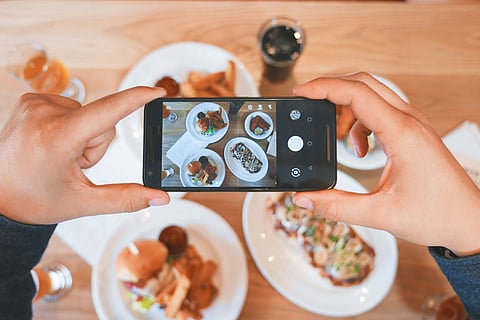The digital food revolution: AI and social media’s impact on eating trends
The way we eat is changing rapidly, driven by social media and artificial intelligence (AI). From tailored meal recommendations to trending foods on social media, technology is driving food choices in ways that were unimaginable ten years ago. These trends come with ease and innovation, but also with challenges that impact eating habits and well-being.
AI’s role in personalised nutrition
AI-driven algorithms are revolutionising the way individuals select what they consume. Customised nutrition apps step into individual preferences, dietary restrictions, and wellness objectives to offer specially tailored meal plans.
These sophisticated AI algorithms take various parameters such as caloric intake, macronutrient balance, and even genetic information to offer customized dietary recommendations. While this technology can ensure healthier diets, there is still a concern regarding excessive dependence on AI recommendations, which may not always match expert advice.
Social media’s influence on food choices
Social networking has emerged as a strong force in the realm of food trends. What research indicates is that individuals are more likely to adopt dietary patterns that are akin to those observed among their social networks. When healthy meals are highlighted, users are likely to incorporate more servings of fruits, vegetables, and whole grains into their diets. Conversely, the reverse can also occur—trends regarding fast food, overindulgence in high-calorie foods, and extreme dieting practices can go viral, leading followers to make poor decisions.
The rise of trend-driven eating
Social media viral food trends tend to control what people eat. From fad diets to overnight oats, platforms bombard users with recipes and diet challenges. While some trends encourage healthy eating, other trends fuel unsustainable or deceptive eating. Misinformation in the form of excessive health benefits of foods or unrealistic weight loss promises can confuse and result in unhealthy eating.
Digital influence on mindful eating
While social media and AI enhance food access, they also enable distracted eating. Excessive viewing of food content results in increased hunger, overconsumption, or impulsive eating decisions. The "eating for content" culture has also emerged, where people opt for foods that are pleasing to the eyes rather than healthy foods. This shift not only affects personal health but also food wastage since trend-eating usually leads to short-lived dietary experiments.

